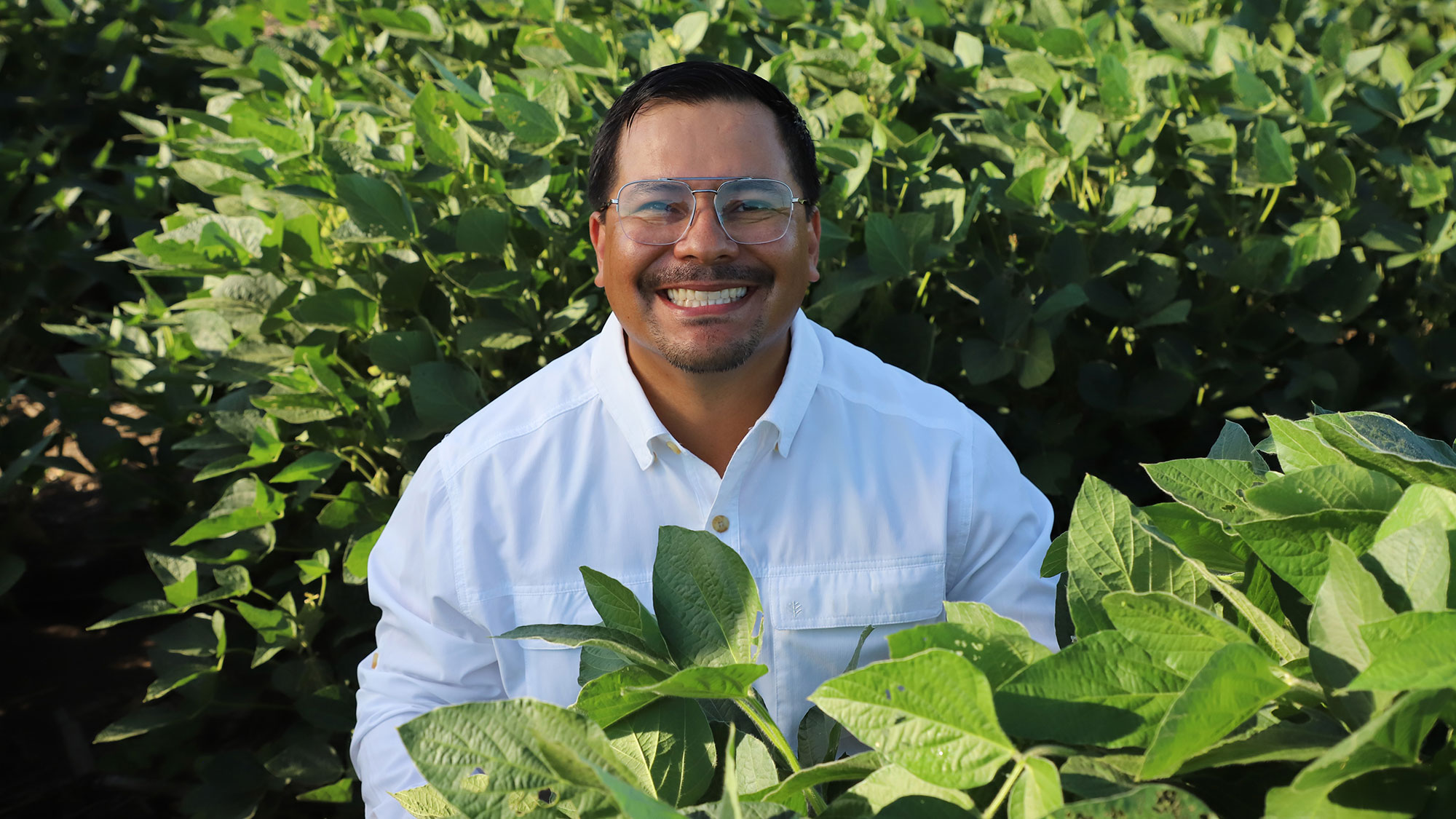
by Fran tenBensel Benne | Agronomy and Horticulture
Luis Gerardo Alejandro Posadas Martinez began June 1, 2022, as a research assistant professor in the Department of Agronomy and Horticulture.
Posadas Martinez is developing genetic tools to measure the impact of biological nitrogen fixation in soybeans. He works in Nebraska’s soybean breeding program with George Graef, professor and presidential chair in soybean breeding.
“Our primary focus is to provide Nebraska farmers with the best soybean varieties they can grow in their fields,” Posadas Martinez said. “This is a comprehensive program that entails field and laboratory work and there is a multitude of projects going through the breeding pipeline at any given time.”
Posadas Martinez supports the program in molecular genetics, trait introgression, early generation and bioinformatics. He’s also involved in more specific projects like increasing the genetic pool of U.S. commercial soybeans, developing high-protein germplasm and studying the different routes of nitrogen uptake in soybean.
He was born in Nezahualcóyotl, Mexico, which is a municipality in the outskirts of Mexico City. The city’s name comes from the Nahuatl, meaning fasting coyote. Nahuatl is an indigenous language spoken by some of Posadas Martinez’ family members and about 1.5 million people in central Mexico. Posadas Martinez has found that the plant seed, whether symbolic or actual, has deep connotations in this native culture.
“For the most part, I grew up oblivious to agriculture and farming as everything known to me was engulfed by a jungle of asphalt,” he said. “So, as a kid, I never imagined I would become a professional working in agriculture.”
Posadas Martinez became interested in science when he took an introduction to general chemistry class in high school. He said that class really lit a spark as he remembered some of his classmates told him to consider a major in science since he was good at it.
He was fortunate to have two great genetics professors and mentors as an undergraduate — David Slaymaker and Pradeep Patnaik from the Department of Biology at William Paterson University in New Jersey — who introduced him to genetics and molecular biology.
“I started working as an undergraduate with Dr. Slaymaker in his lab,” he said. “He was doing some experiments with Arabidopsis and soybean then. I appreciated that no blood was involved when dissecting plant tissue and that killing plants went a lot smoother than what I heard from my classmates dealing with mice.”
Slaymaker also introduced him to plant genetic improvement and told Posadas Martinez that the scientists really making a difference in crop improvement, were plant breeders.
He received a Bachelor of Science in biotechnology from William Paterson University in 2005.
He was recruited by the University of Nebraska–Lincoln’s graduate program through the Othmer Fellowship in 2008 intended to assist exceptional scholars seeking a doctorate.
“I was looking for a high-quality graduate program at a location where the cost of living was reasonable,” he said. “It didn't take long to realize why the highway signs on the Nebraska State borders display the tagline, ‘Nebraska...the good life.’”
His adviser was Graef. Posadas Martinez says Graef was a great, tough mentor who pushed him to earn his doctorate through exciting research. He earned a doctorate in agronomy with a specialization in plant breeding and a minor in statistics in 2013.
After graduation, Posadas Martinez became a postdoc in agronomy and horticulture, working with Graef. He then took a job with Bayer as the Corn Breeding Pipeline Coordinator for one and a half years. This involved a large global breeding pipeline and interacting with multiple countries representing the world's major agricultural regions.
Posadas Martinez returned to the university for more postdoc work with Graef and soybean research in 2016. He considers Graef a valued friend and colleague today.
Outside of work, Posadas Martinez enjoys taking long walks with his wife at Pioneers Park and spending time at Pawnee Lake with his family. He tries to stay in shape and bikes to work when there’s no snow.
More details at: https://go.unl.edu/df9e